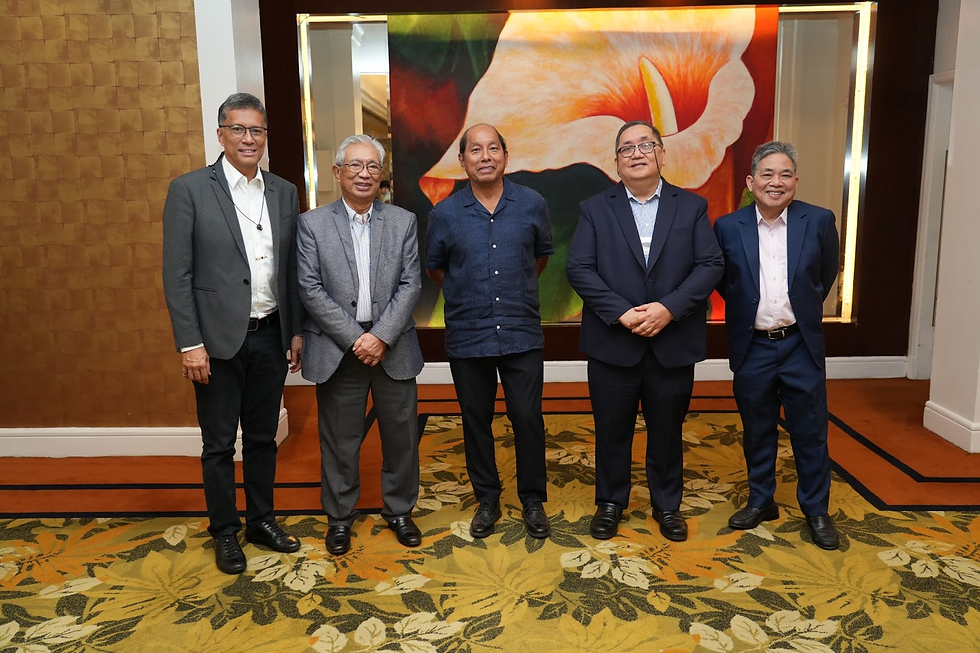BOC SHUTDOWN OF MIGHTY TOBACCO WAREHOUSE HAILED BY HEALTH ADVOCATES
- Action for Economic Reforms
- Feb 4, 2014
- 3 min read
Action for Economic Reforms (AER)
FCTC Alliance of the Philippines (FCAP)
Philippine College of Physicians (PCP)
WomanHealth Philippines
We, members of the civil society coalition that supported the passage of the Sin Tax Reform Law (R.A. 10351), laud the Bureau of Customs (BOC) and Commissioner John Philip Sevilla for suspending the license of Mighty Corporation to operate its customs-bonded warehouse. Last January 16, the BOC issued a memorandum approving a Department of Finance (DOF) Task Force’s recommendation to close down Mighty Corp.’s importation warehouse.
The BOC shutdown of Mighty’s warehouse comes amidst a maelstrom of controversy. Throughout 2013, Mighty has been accused of engaging in technical smuggling, resulting in artifically-low prices of its cigarettes, which, in turn encouraged the shifting of consumption from higher-priced cigarettes to Mighty’s brands. The downshifting of consumption does not align with the Sin Tax Law’s objective of discouraging smoking.
We are thus gratified by the BOC’s action to temporarily close Mighty Corp.’s warehouse to prevent revenue leaks, as well as by the DOF’s wider effort of probing the allegations against the company. These actions clearly bear out our government’s commitment to generating a climate of regulatory compliance, within which the social objectives of the Sin Tax Law can best be met.
Moreover, it should be noted that some of the charges levelled against Mighty have been affirmed in the initial report of the DOF Task Force, which attested to “substantial unaccounted raw materials that should have been exported”, as well as “potentially huge revenue leakage.” These findings square well with the commonly-noted observation that in 2013, Mighty’s cigarettes were sold at a price below the break-even rate.
We quote the following passage from the DOF Task Force report:
“During the course of evidence gathering and documentation at the Port of Manila, it was noted that the subject Mighty has made a series of requests for large payments of duties and taxes of Mighty Corporation’s warehousing importations… it is highly irregular, bordering on the anomalous, for Mighty to make duty payments for unusually large volume of bonded raw materials that are supposed to be devoted to manufacturing and exportation of its finished products.”
Our coalition looks forward to the eventual release of the DOF Task Force’s final report. In the meantime, it is highly reassuring that the BOC and the DOF’s decisive response to the Mighty controversy will serve to prevent a similar incident from being repeated this year.
As last year’s experience with Mighty Corp. proved, the practice of artificially-depressing the price of cigarettes sets a worrisome precedent that goads other tobacco manufacturers to follow suit. Indeed, in December 2013, we note that Philip Morris Fortune Tobacco Inc. (PMFTC) petitioned the Bureau of Internal Revenue (BIR) to reclassify four Marlboro cigarette brands as low-priced tobacco products, in order reclaim its market share from Mighty.
Based on a December 15 release (“BIR rejects PMFTC’s classification request”, Manila Bulletin, 12/15/2013), the BIR has reportedly thumbed down PMFTC’s request, with Commissioner Kim Jacinto Henares stating that PMFTC’s market share complaints could have been prevented if “they [PMFTC] did not strongly oppose our proposal [for a unitary tax rate system on cigarettes] from the start.” Nevertheless, we also recognize that the incentive for cigarette companies to protect their consumer base by underpricing their brands will remain so long as Mighty’s underpricing practices continue. This will, undoubtedly, impair the health and revenue goals of the Sin Tax Law.
We continue to have full confidence in the ability and integrity of public officials like BOC Commissioner Sevilla, and BIR Commissioner Kim Jacinto-Henares to ensure the compliance of firms like Mighty Corp. to tax and customs regulations.
Under their watch, the supporters of the Sin Tax Law are confident that the gains of this landmark piece of legislation will continue to be safeguarded from threats for years to come.



